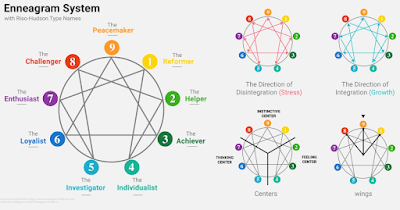Ha Ha! Gotcha…
I shared this article by saying it would only be available for a limited time (It’s not. This was just to make a point). As a result, I expect it will I’ll get more readers quicker than my previous posts, at least for the first few hours (update: after one hour, there have been more views than normal). Why do I think this? Because people want what they can’t have. We all know this, and if not, all we have to do is read Genesis 3.
The scarcity principle is probably the persuasion tool that we are most familiar with because we see it all the time. Limited time offers, exclusive rights, and while supplies last are all common ways that companies take advantage of this principle. The scarcity principle works because we value things more if they are limited, hard to get, or prohibited. Scarcity signals that an item will be more advantageous to us, either for our survival or social status.
Unfortunately, scarcity is the most difficult principle to apply to evangelism and apologetics, at least for Christianity because salvation is freely available to all people, without special knowledge or practices. However, it can still be used in some circumstances and being aware of it can help so this principle doesn’t work against us.
Psychological Reactance
The basic reason this principle works is because of psychological reactance. It’s really a feature of childish thinking, but it often lingers in adults (in some people more than others). Simply put, when we can’t have something, we react against whatever or whoever tells us no by trying even harder to get the item.

Reactance often stems from a fear response, which is why people are more averse to loss than they are excited about gains. When there is a limited supply, limited time, censorship, or competition for something, we fear that we will miss out on it and we will want it more. Typically, this causes people to think and act irrationally, in ways they wouldn’t otherwise act. As Christians, and especially as apologists, we want people to think more rationally. To use this principle, we want to instill a healthy sense of urgency so they realize how important it is to think thoroughly about God, but we don’t want to push them into the realm or irrational reactance.
Application
When using this principle in evangelism and apologetics we must be aware of the possible unintended consequences that push people further away from Christ. What seems like the most likely application of this principle is to point out that we have limited time on this earth, and we could die at any moment, so we don’t want to miss our chance. The problem with this approach comes from what is known as terror management theory (TMT), which basically says that people have a fear of death that they constantly try to minimize. The research shows that when confronted with death, people are more likely to double-down on what they already believe and cling to it more confidently.
Another possible tactic is to focus on the exclusivity of Christianity; that it’s the only way to be saved. Again though, this may backfire and cause people to react emotionally by clinging stronger to their current beliefs in order to prove you wrong or because our culture is so strongly opposed to exclusivity (even though it’s present in every worldview) that they will be emotionally appalled to such claims.
If and when you use this principle, it is best to do so in combination with previously discussed principles, especially liking. If a person likes you and feels safe talking to you, they are less likely to react negatively against the exclusive nature of Christianity or fear of death. In this way, you can function as the attachment figure that provides a safety net for them to explore the idea of Christianity being true.
There still are two relatively safe and easy ways to apply this principle. The first one requires a little bit of patience or proper timing though. People are much more open to religion in times of crisis. These moments that occur throughout our lives naturally make us feel like our time on this earth is limited. If you know someone going through such a moment, be there for them. You don’t have to try to initiate spiritual conversations or push Jesus on them, but you do have to be a kind and caring person who is present with them. They will probably initiate the conversation, and if they don’t, you can drop hints without being pushy.
The other way to use this principle is inherent in apologetics because so many people don’t know what it is. Simply by putting the idea out there that there is reason and evidence for God that most people don’t know about will pique their curiosity. Just be careful not to reveal too much to quick, unless they specifically ask. Just put enough out there to make them want to know more. Depending on how well you know them, you may even be able to joke a little about how they are ready to handle to information.
Conclusion
The scarcity principle is hard to use for Christianity because of what we believe, but it is commonly used by other religions to manipulate people. Many religions appeal to secret knowledge that can only be attained through their special practices (meditation, yoga, snake-handling, etc.). Many cults intentionally keep aspects of their beliefs secret so that those who know the secrets feel special and those who don’t know are desperate to find out. Islam, Jehovah’s Witnesses, Latter-Day Saints, and atheists claim to know the unbiased, secret truth about Jesus and His teachings which cannot be known elsewhere (because it contradicts the evidence).
However, Christianity claims to be freely available to all people. While knowledge is not required for Christianity, we have evidence for our beliefs which is also readily available to people (even though most don’t know about it). When using scarcity, be careful so that it doesn’t cause them to react against Christianity. It’s an effective principle, but can easily be abused or lead to the backfire effect.
My advice is to keep a watch out for this principle so that you are not fooled by scarcity (not just in religion, but with sales and anything else). My next article will be on the principle of authority. While it may seem irrelevant because of our individualistic and autonomous culture, if you know how to use it, it can be just as effective as ever.
Works Cited
This article was adapted to evangelism and apologetics from a chapter in Cialdini, R. B. (2009). Influence: Science and practice 5th ed. Boston, MA: Pearson education



